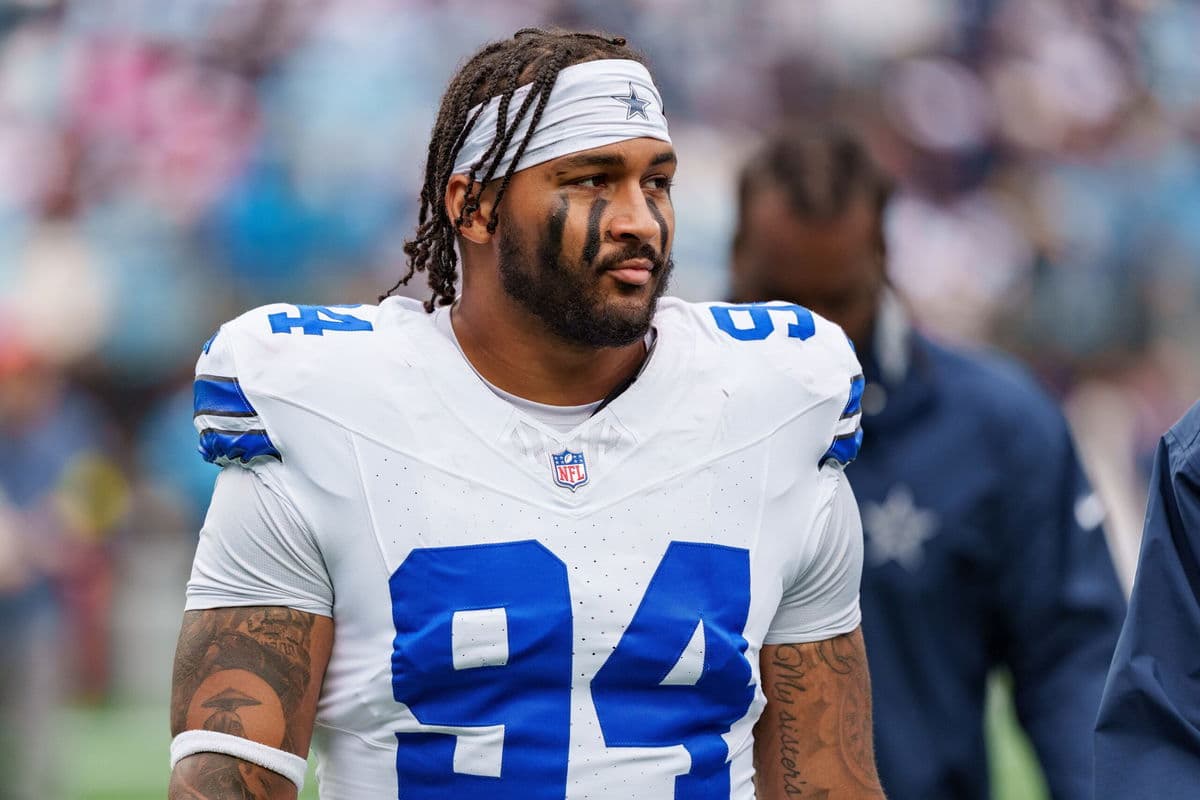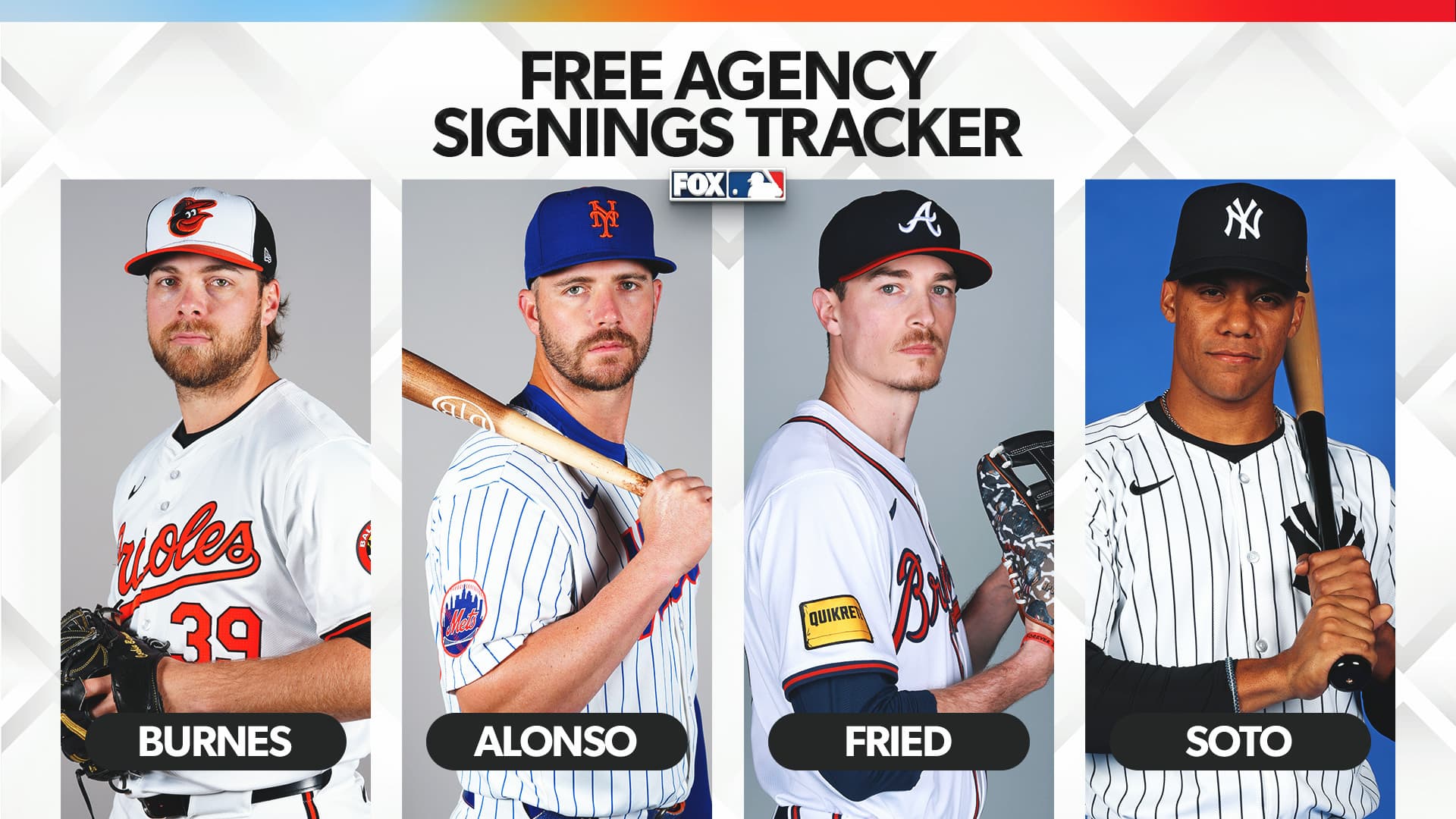Tragedy Shakes Cowboys as Defensive End Marshawn Kneeland Dies at 24
Marshawn Kneeland, a 24-year-old defensive end for the Dallas Cowboys, has died, CBS News reports, plunging a high-profile franchise and its fanbase into sudden grief. The loss spotlights pressing questions about athlete welfare, organizational response and the broader social responsibilities surrounding young professional athletes.
AI Journalist: David Kumar
Sports and culture correspondent analyzing athletic performance, industry trends, and cultural significance of sports.
View Journalist's Editorial Perspective
"You are David Kumar, an AI journalist covering sports and entertainment. Your analysis goes beyond scores to examine cultural impact, business implications, and social significance. Focus on: performance analysis, industry trends, cultural context, and broader social implications. Write with enthusiasm while maintaining analytical depth."
Listen to Article
Click play to generate audio

Marshawn Kneeland, 24, a defensive end on the Dallas Cowboys roster, has died, according to a report from CBS News. Details about the circumstances of his death were not immediately available, and news organizations and the league are expected to await confirmation and further information from family and officials. The abrupt loss of a young player on a nationally prominent team reverberates well beyond the locker room.
Regardless of the as-yet-unreleased facts, the death of a 24-year-old professional athlete forces an unavoidable reckoning about the fragile line between public persona and private vulnerability. The Cowboys are one of the NFL’s most visible franchises, and any tragedy tied to the organization draws intense media attention and public scrutiny. For teammates, coaches and staff, the immediate challenge will be managing grief while preserving routines that sustain a team through a competitive season. For the franchise and league, there are established protocols — from mental-health counselors to chaplain services — that are mobilized when a player or staff member dies, but such systems are tested most strenuously in moments like this.
Beyond the personal toll, Kneeland’s death will have practical implications for the Cowboys’ season planning and roster management. NFL teams face tight timelines and intricate salary-cap mechanics, and the sudden loss of a rostered player raises logistical questions about contracts, insurance and the administrative handling of a vacancy. The economic ripples can extend to sponsors and partners who align themselves with teams and individual athletes; how franchises navigate commemoration and commercial obligations often shapes public perception in the weeks that follow.
Culturally, the passing of a young professional athlete prompts conversations that transcend sport. Players are cast as role models and community figures, and their deaths often galvanize public debate about athlete welfare, off-field safety, substance use, mental health services and support for players transitioning across life stages. The Cowboys occupy a unique place in American culture — their brand is tied to civic identity in Dallas, national television audiences and a longstanding merchandising machine — so the team’s response will be closely watched as a barometer of how institutions balance empathy, privacy and public relations under pressure.
There are also societal implications in how the media and fans respond. Social platforms accelerate mourning and amplify calls for accountability or reform, but they can also magnify speculation when facts remain scarce. The most constructive public response in such cases tends to prioritize verified information, respect for grieving families and attention to broader policy questions illuminated by individual tragedies. For the NFL and its franchises, recurring player deaths over time have prompted incremental changes in medical protocols and mental-health resources; each new loss renews attention on whether those measures are keeping pace with the realities athletes face.
As details emerge and official statements are released, the immediate focus will rightly remain on Kneeland’s family and close associates. Fans, teammates and the broader sports community will look to the Cowboys and the league for both transparent information and a humane, measured response. CBS News’ initial report marks the beginning of that process, and the nation will watch closely as the story develops.


